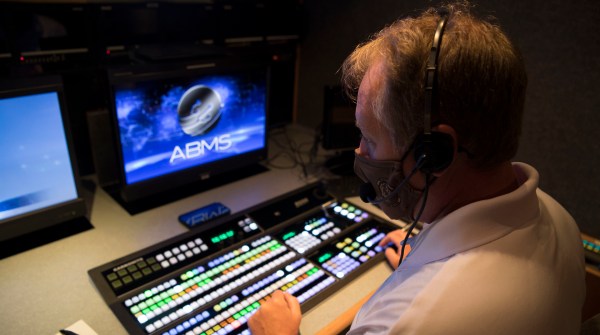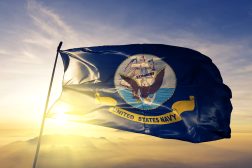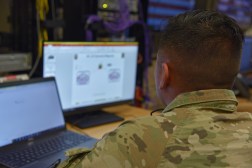Air Force, Navy developing agreement to share coding platforms

The Air Force and Navy are working on an agreement that will allow each of their software factories to share more code and products.
The agreement is close to being finalized Navy CTO Jane Rathbun said Tuesday. There are still technical “nuances” being worked out between the departments on how best to create a collaborative environment between the Air Force’s Platform One and the Navy’s Black Pearl, each service’s DevSecOps software development platforms, but the gist of the agreement will allow each to work off the other’s platforms and code more easily, Rathbun added.
Air Force Chief Software Officer Nicolas Chaillan confirmed this in a statement to FedScoop, saying: “The Department of the Air Force [is] working with the Navy leadership to define what a collaborative environment between Black Pearl and Platform One looks like.”
Platform One has a continuous authority to operate (c-ATO), meaning that its coding environment and processes have been certified to be so secure that the products it makes and any updates to the platform do not need additional approvals before going live. That cuts down the time it takes to start using the software, as the typical ATO process can take weeks or months.
While the two services already share some products, like the code repository Iron Bank, they want to deepen what each can do with each other. The Navy’s Black Pearl platform is newer than Platform One, and the service hopes to build off the Air Force’s work to give sailors and Marines an established DevSecOps environment to code in. Black Pearl had a soft launch in September with an initial cohort of users gaining access to the coding environment.
“We are leveraging as much of what the Air Force has done that we can,” Rathbun said.
Platform One is also trying to share its work by transitioning some of its products to the private sector through a Cooperative Research and Development Agreement (CRADA). The agreement between the government and non-government entities allows for the private sector to commercialize government-created technology, in this case, the Air Force’s coding environment.
One detail being worked out between the Navy and Air Force is how each service will develop on top of shared source code.
“[I]t is critical that we ensure there is no forking of code or any drift between implementations,” Chaillan said, referring to the practice of developing new applications and pieces of software on top of the same source code.
The idea is to be as interoperable as possible, Rathbun said. The agreement would commit more resources to how the two work together, evolving their relationship to include more recognition and the ability to share products.
“What we have discovered in our partnership is there is some nuance in how the Navy needs to deploy” software, she said.





